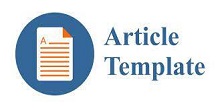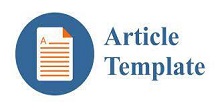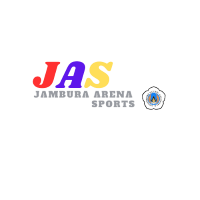- Focus and Scope
- Section Policies
- Peer Review Process
- Publication Frequency
- Open Access Policy
- Archiving
Focus and Scope
In the Jambura Arena Sport Focus and Scope in the Sports Sector
Sports Science,
Sports Training,
Sports Education.
Section Policies
Articles
Peer Review Process
JAS : Research Journal publishes articles following JAS guidelines and templates. Pre-review of the manuscript is carried out by the editorial team to review the suitability of the text with the focus and scope as well as the journal style and JAS writing guidelines. All submitted manuscripts will go through a double-blind review process. Manuscripts will be sent to a minimum of two reviewers based on their field of interest. Reviewers provide an assessment of the manuscript that includes originality, scientific contribution, and clarity of presentation. Based on comments and suggestions from the reviewer, the editorial board makes decisions on the reviewer's comments and suggestions. JAS has four types of decisions including accepted, accepted with minor revisions, accepted with major revisions, and rejected. Plagiarism checking is carried out using Turnitin software.
Publication Frequency
JAS is scheduled to be published in March, July and November (3 issues a year). Published electronically via the journal website (https://ejurnal.ung.ac.id/index.php/JAS/indexv). Each publication number (issue) has a minimum of 5 (five) titles and published articles will be given a DOI (digital object identifier).
Open Access Policy
The journal provides immediate open access to its content on the principle that making research freely available to the public supports greater global exchange of knowledge. By "open access" to this literature, we mean its free availability on the public internet, allowing any user to read, download, copy, distribute, print, search, or link to the full text of this article, crawl it for indexing, submit it as data to software, or use it for any other lawful purpose, without financial, legal, or technical obstacles other than those inseparable from gaining access to the internet itself. The only restrictions on reproduction and distribution, and the only role of copyright in this domain, should be to give authors control over the integrity of their work and the right to be properly acknowledged and cited.
Archiving
This journal utilizes the LOCKSS system to create a distributed archiving system among participating libraries and permits those libraries to create permanent archives of the journal for purposes of preservation and restoration. More...




















